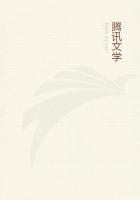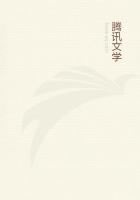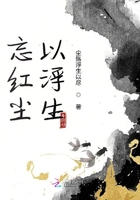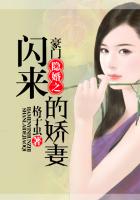I feel therefore impelled to say a very few words in defence of that system of teaching adopted in our Colleges, by which we wish to supplement and complete the instruction given by private individuals or by what are often called Summer Schools.
The reason why we teach so much that is not practical and in itself useful, is because we find that the easiest way of teaching what is practical and useful. If we could in any way eliminate all that would help a man to deal successfully with disease, and teach it by itself so that it should be as tenaciously rooted in the memory, as easily summoned when wanted, as fertile in suggestion of related facts, as satisfactory to the peremptory demands of the intelligence as if taught in its scientific connections, I think it would be our duty so to teach the momentous truths of medicine, and to regard all useless additions as an intrusion on the time which should be otherwise occupied.
But we cannot successfully eliminate and teach by itself that which is purely practical. The easiest and surest why of acquiring facts is to learn them in groups, in systems, and systematized knowledge is science. You can very often carry two facts fastened together more easily than one by itself, as a housemaid can carry two pails of water with a hoop more easily than one without it. You can remember a man's face, made up of many features, better than you can his nose or his mouth or his eye-brow. Scores of proverbs show you that you can remember two lines that rhyme better than one without the jingle.
The ancients, who knew the laws of memory, grouped the seven cities that contended for the honor of being Homer's birthplace in a line thus given by Aulus Gellius :
Smurna, Rodos, Colophon, Salamin, Ios, Argos, Athenai.
I remember, in the earlier political days of Martin Van Buren, that Colonel Stone, of the "New York Commercial," or one of his correspondents, said that six towns of New York would claim in the same way to have been the birth-place of the "Little Magician," as he was then called; and thus he gave their names, any one of which I should long ago have forgotten, but which as a group have stuck tight in my memory from that day to this;
Catskill, Saugerties, Redhook, Kinderhook, Scaghticoke, Schodac.
If the memory gains so much by mere rhythmical association, how much more will it gain when isolated facts are brought together under laws and principles, when organs are examined in their natural connections, when structure is coupled with function, and healthy and diseased action are studied as they pass one into the other!
Systematic, or scientific study is invaluable as supplying a natural kind of mnemonics, if for nothing else. You cannot properly learn the facts you want from Anatomy and Chemistry in any way so easily as by taking them in their regular order, with other allied facts, only there must be common sense exercised in leaving out a great deal which belongs to each of the two branches as pure science. The dullest of teachers is the one who does not know what to omit.
The larger aim of scientific training is to furnish you with principles to which you will be able to refer isolated facts, and so bring these within the range of recorded experience. See what the "London Times" said about the three Germans who cracked open John Bull Chatwood's strong-box at the Fair the other day, while the three Englishmen hammered away in vain at Brother Jonathan Herring's. The Englishmen represented brute force. The Germans had been trained to appreciate principle. The Englishman "knows his business by rote and rule of thumb"--science, which would "teach him to do in an hour what has hitherto occupied him two hours," "is in a manner forbidden to him." To this cause the "Times" attributes the falling off of English workmen in comparison with those of the Continent.
Granting all this, we must not expect too much from "science" as distinguished from common experience. There are ten thousand experimenters without special apparatus for every one in the laboratory. Accident is the great chemist and toxicologist. Battle is the great vivisector. Hunger has instituted researches on food such as no Liebig, no Academic Commission has ever recorded.
Medicine, sometimes impertinently, often ignorantly, often carelessly called "allopathy," appropriates everything from every source that can be of the slightest use to anybody who is ailing in any way, or like to be ailing from any cause. It learned from a monk how to use antimony, from a Jesuit how to cure agues, from a friar how to cut for stone, from a soldier how to treat gout, from a sailor how to keep off scurvy, from a postmaster how to sound the Eustachian tube, from a dairy-maid how to prevent small-pox, and from an old market- woman how to catch the itch-insect. It borrowed acupuncture and the moxa from the Japanese heathen, and was taught the use of lobelia by the American savage. It stands ready to-day to accept anything from any theorist, from any empiric who can make out a good case for his discovery or his remedy. "Science" is one of its benefactors, but only one, out of many. Ask the wisest practising physician you know, what branches of science help him habitually, and what amount of knowledge relating to each branch he requires for his professional duties. He will tell you that scientific training has a value independent of all the special knowledge acquired. He will tell you that many facts are explained by studying them in the wider range of related facts to which they belong. He will gratefully recognize that the anatomist has furnished him with indispensable data, that the physiologist has sometimes put him on the track of new modes of treatment, that the chemist has isolated the active principles of his medicines, has taught him how to combine them, has from time to time offered him new remedial agencies, and so of others of his allies.

